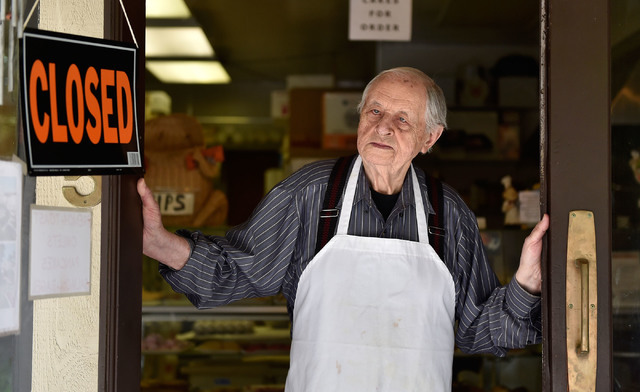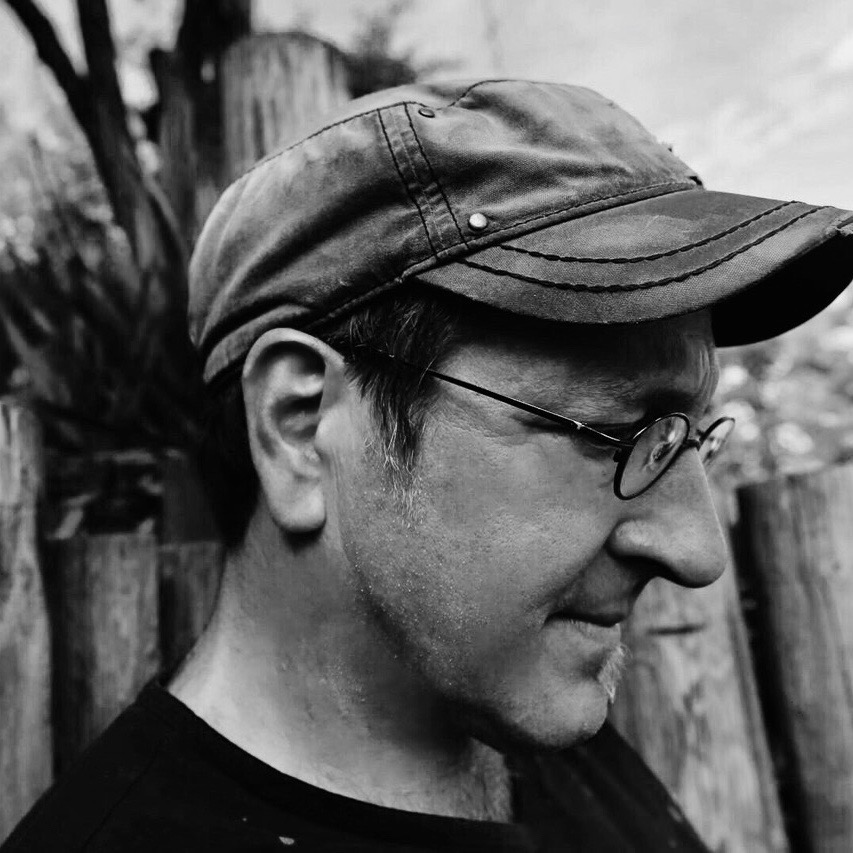 Ernie Feld Photo by David Becker
Ernie Feld Photo by David Becker PREVIOUSLY: Bay Area Baker and former German prisoner of war Ernie Feld had lots of enemies and some friends. Fact is, he didn’t care.
Ernie met his second wife, Shoshana, through matchmaking friends.
The year was 1963 and she had just endured a painful divorce and the death of her only son. The Israeli immigrant was lonely and suddenly unmoored in her new country.
At a dinner party, friends introduced her to a handsome baker whose eyes were an impossible blue. He seemed gentle and attentive.
They began dating.
“He was a gentleman and he tried to give me a good time,” Shoshana recalled. “In the beginning, he took me to all kinds of places. He carried me high, as they say.”
As she rode behind Ernie on his Vespa scooter, her arms around his waist, she felt secure. Her ex-husband, a fellow Israeli, had always been so direct, even harsh at times. This man was not that.
But the honeymoon didn’t last.
The two got married and soon had a daughter, whom they named Sharon.
Ernie was always busy in his new bakery. When Sharon got older and she could finagle a babysitter, Shoshana helped her husband in the bakery.
It was there she encountered a different man.
“He was bossy. He knew what he wanted. He was the baker and businessman and I was just an office girl. Even though I had finished college, to him I wasn’t his equal.”
Ernie’s kitchen wrath included insults and thrown pots and pans. That was just Ernie, she told herself at first. All bark and no bite.
He didn’t mean any harm.
Shoshana tried to keep their marriage alive. But eventually, that flame extinguished.
She filed for divorce in 1974.
Shoshana soon met a new man, a short dark-skinned Iraqi Jew with money. With her new husband, Shoshana didn’t have to worry about paying the bills.
She traveled the world and moved to upscale Walnut Creek.
His newest ex-wife’s rise up the socio-economic ladder, the fact that she had done so well without him, was a blow to Ernie’s fragile ego.
Ernie is still traumatized over the war and its aftermath, Shoshana says.
“He always said to me ‘You Israelis,’ like we were a different breed of people. He held it against us that we did not have to endure the Holocaust, that we were in Israel building a state at the time. He’d say ‘You people have everything; you know everything.’”
From the ashes of World War II, she said, Ernie emerged a wounded man.
“He lost his family; he languished in Cyprus. I can see how his heartache shaped him, made his character so harsh,” Shoshana said. “He’s still seeking some kind of revenge. Like he’s continually asking himself why did he have to suffer? Why did he have to endure the camps?”
But Shoshana has never been able to figure out this last part.
Why does Ernie blame his family?
“Why yell and scream at Sharon?” she says. “We weren’t to blame for what happened.”
Still, Ernie points to his ex-wife for the ruined relationship: The way he sees it, she never encouraged his daughter to make peace with her father.
Ernie blames Sharon.
He blames Shoshana.
But he never blames himself.
After her breakup from Ernie, Shoshana became a writer. She penned a play about former Israeli Prime Minister Golda Meir and a popular novel.
“The Sand Soldiers,” chronicles the unlikely romance between an Arab-Israeli couple at the end of World War II, a time of suspense and underground warfare between the various opposing camps in Palestine.
The book was published in 2010, when Shoshana was 78.
Ernie never congratulated her on the success.
“Not a word,” she said.
NEXT WEEK: So what was it like to be Ernie Feld’s daughter? Hell on earth.























 More news and opinions than at a Shabbat dinner, right in your inbox.
More news and opinions than at a Shabbat dinner, right in your inbox.